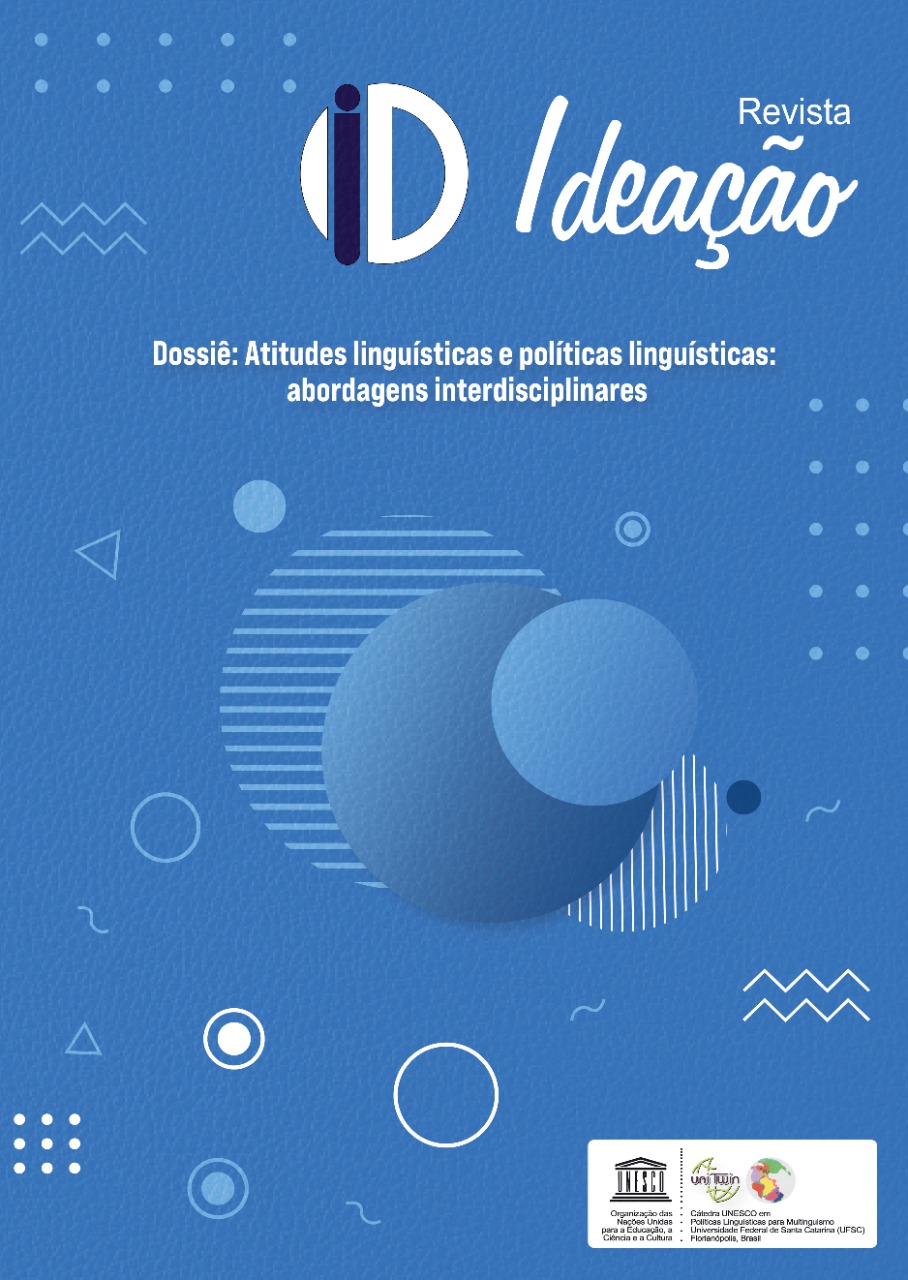HE WHO LOSES HIS LANGUAGE LOSES HIS LAW: THE POLITICS OF LANGUAGE IN MEDIEVAL AND EARLY MODERN IBERIA
DOI:
https://doi.org/10.48075/ri.v22i2.25293Palavras-chave:
Christians, Muslims, Arabic, Algarabía, Romance, Diglossia, Linguistic Policy, Language attitudes.Resumo
One of the most striking developments in the history of medieval and early modern Iberia is that of its linguistic transformation from being a predominantly Romance speaking community to being thoroughly monolingual in Arabic in most territories under Islamic rule, only to become again an almost exclusively Romance speaking society after the expulsion of the Moriscos in 1609. This linguistic development can be arguably related to the political and social transformations due, in the first place, to the Islamic conquest and rule of most of the Iberia peninsula for a period of eight centuries and, second, to the subsequent belligerent reaction of the Christian Kingdoms of the North that ended up in the defeat and disappearance of the last Muslim kingdom of Granada in 1492, followed by the expulsion in 1609 of the last Muslims (Moriscos) of the Iberian peninsula many of whom were still speakers of the Arabic language. The association of Arabic with Islam and that of Romance with Christianity was a prevalent notion among both Christians and Muslims but it led to different linguistic policies and linguistic attitudes in the Iberia ruled by Muslims and in the Iberia ruled by Christians. In this article we intend to do a comparative study of the linguistic attitudes and policies towards the language of the religious “other” or religious “enemy” in two different specific periods: First, in al-Andalus, from the eleventh century onwards, at the time that Arabic was the dominant language and when religious diversity was on the verge of extinction after the strict rule of the Almohad dynasty. Second, in 16th century Christian Spain, at the time that Castilian Romance was being standardized and the dominant language of the country and when the only traces of religious diversity, that is, the Morisco community, were harshly repressed and on the eve of being expelled from the country. In both cases, the religious minority under duress was identified with a powerful external threat: the Christians of the North, in the first case, and external Islam (Ottoman Empire and North Africa), in the second. Furthermore, those minorities are representative of the religious enemy within the framework of confrontation between Islam and Christianity in the Iberian Peninsula. The comparison will be articulated through two main enquiries: First, the enquiry into the degree of knowledge of the language of the religious other/enemy and, more specifically, the awareness and interpretation of the two existing diglossias: Classical Arabic/Andalusi Arabic in the case of Muslims and Romance/Latin in the case of Christians. Second, we will address our enquiry into the linguistic policies (whether overt or surreptitious) and linguistic attitudes towards the language of the religious other as reflected in contemporary literature.Downloads
Publicado
Como Citar
Edição
Seção
Licença
Política para Periódicos de Acesso Livre
Autores que publicam nesta revista concordam com os seguintes termos:
1. Autores mantém os direitos autorais e concedem à revista o direito de primeira publicação, com o trabalho simultaneamente licenciado sob a Licença Creative Commons Attribution que permite o compartilhamento do trabalho com reconhecimento da autoria e publicação inicial nesta revista.
2. Autores têm autorização para assumir contratos adicionais separadamente, para distribuição não-exclusiva da versão do trabalho publicada nesta revista (ex.: publicar em repositório institucional ou como capítulo de livro), com reconhecimento de autoria e publicação inicial nesta revista.
3. Autores têm permissão e são estimulados a publicar e distribuir seu trabalho online (ex.: em repositórios institucionais ou na sua página pessoal) a qualquer ponto antes ou durante o processo editorial, já que isso pode gerar alterações produtivas, bem como aumentar o impacto e a citação do trabalho publicado (Veja O Efeito do Acesso Livre).
Licença Creative Commons
Esta obra está licenciada com uma Licença Creative Commons Atribuição-NãoComercial-CompartilhaIgual 4.0 Internacional, o que permite compartilhar, copiar, distribuir, exibir, reproduzir, a totalidade ou partes desde que não tenha objetivo comercial e sejam citados os autores e a fonte.


